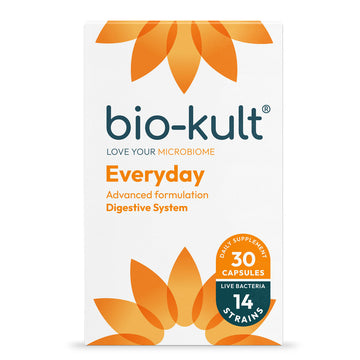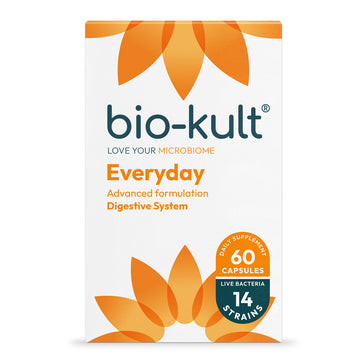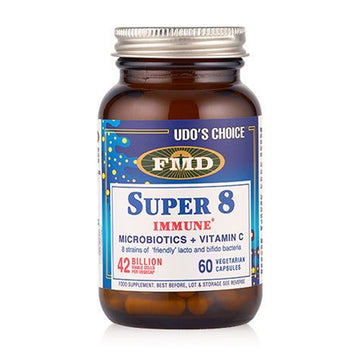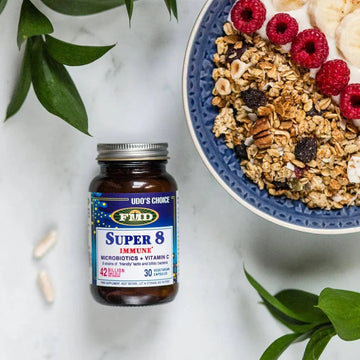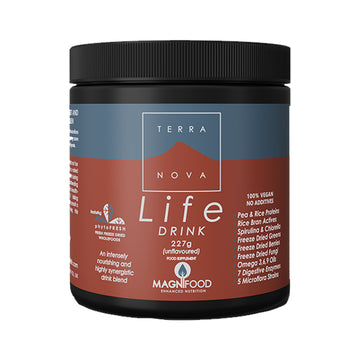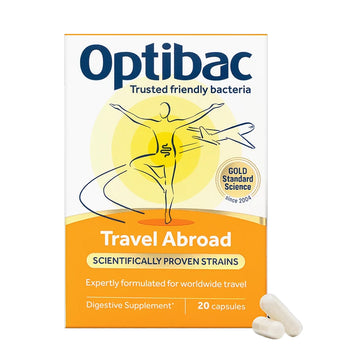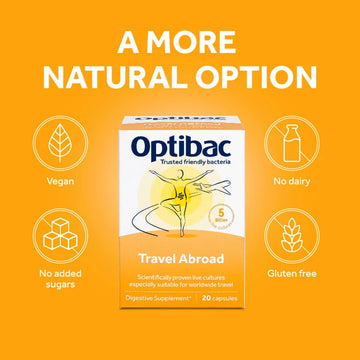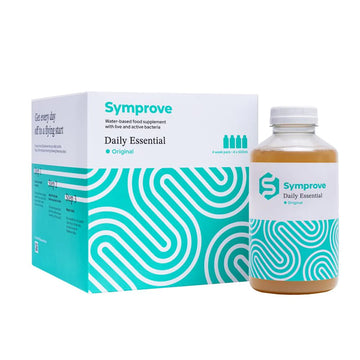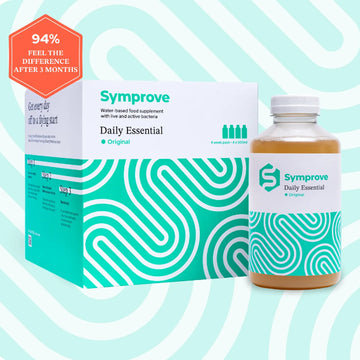The last thing anyone wants is to have a sick or upset tummy when travelling or on holidays. However, it unfortunately happens more often than we'd like. This can be down to your digestive system experiencing many different foods and drinks prepared in unfamiliar environments. And is especially common in underdeveloped countries. It's been dubbed 'travellers' tummy’. This happens when there is an unbalance in your natural gut flora, which can cause stomach pains, diarrhoea, nausea, bloating, cramps and vomiting (just what you want on holidays). What to do? Many people take probiotics during their travels to help reduce the risk of this happening. So what are the benefits of taking probiotics when travelling?
What are probiotics?
Probiotics literally means ‘good bacteria’. Our gut is made up of both ‘good’ and ‘bad’ bacteria. When more ‘bad’ bacteria than ‘good’ bacteria are present it can result in stomach upset and diarrhoea. Probiotics are taken to help retain the natural balance between these ‘good’ and ‘bad’ bacteria’s in the gastrointestinal tract. This unbalance doesn't only happen when travelling and so many people take probiotics daily to aid the overall health of their digestive systems.
What are the benefits of taking probiotics when travelling?
Probiotics have many health benefits when travelling. The objective of consuming probiotics is to build up the population of ‘good’ bacteria’s in your gut so when your digestive system predictably encounters excess ‘bad’ bacteria’s, your gastrointestinal tract is prepared. Here are just some of the benefits of taking probiotics when travelling (and in general)...
Protecting the body against infection
Not only do probiotics aid your overall digestive health, they're also known to protect your body from many different infections including urinary tract infections and yeast infections. They're also known for supporting the body against E. Coli contamination, acute diarrhoea, acne and irritable bowel syndrome.
Increases immunity
Taking probiotics can help lead to a healthy gut flora. This is directly linked to a stronger immune system.
Aids absorption of nutrients
Consuming probiotics has been shown to aid the absorption of vitamins and minerals in the body, particularly calcium and vitamin B.
Probiotics support skin health
Probiotics support skin health by discouraging the production of toxins and neutralising existing toxins in the body.
Aids detoxification in the body
Probiotics promote the detoxification of the body naturally. This can help reduce the occurrence of constipation.
Helps the body recover after antibiotics
Antibiotics inadvertently kill many of the ‘good’ bacteria’s present in the digestive tract. Probiotics help restore the natural balance of bacteria’s in the body.
Probiotics help energy levels
Travelling can take it out of you. But probiotics help energy levels by producing short chain fatty acids and B-complex vitamins which help metabolism and support energy production.
Why should I take probiotics?
Although probiotics can be found in foods such as yoghurts and pickles, many of them can’t survive through the stomach before reaching your intestines, which is where they're most beneficial. Also, all the different strains needed to help prevent travellers' ‘tummy’ cannot be gotten from food alone: “One strain can’t do it all” (Institut Rosell).
Taking a supplement will help ensure you get all the beneficial bacteria needed to balance the bacteria's in the digestive tract. This in turn can reduce the risk of travellers' illnesses associated with eating unfamiliar foods in different environments. So there's benefits to taking probiotics both when travelling and on a regular basis.
Looking to pick up some probiotics for your own trip? Browse Evergreen's probiotics here.
Please note, this blog is for informational purposes only and should not replace medical advice.
It’s always best to consult your doctor before taking any new supplements, treatments or remedies if you are pregnant, breastfeeding or on medication.
Author: Joanne Morgan
Checked and updated: 3 September 2021



